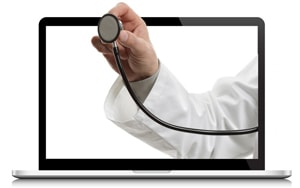Virtual Consultations Available! Start Your Journey Today.
Schedule A ConsultationGynecomastia is a condition where there is an increase in the amount of breast (glandular) tissue in both boys and men. It can occur in one breast or both and can be caused by a variety of factors, including hormonal imbalances, certain health conditions, and medications.
While the condition is not deemed serious, it is important to understand what triggers the condition, the treatments available, and the lifestyle changes you can make.
There are a number of medications and substances that can trigger gynecomastia. If you are taking any of the following medications and have developed gynecomastia, the medication may be why. In many instances, the medications may be medically necessary, so it is not advisable to stop taking them unless instructed by your physician that it is safe to do so.
There are also several recreational substances that can have a potential role in the development of gynecomastia. Some of these substances include:
There are a number of lifestyle factors that can contribute to the development of gynecomastia. Your diet, weight, and level of alcohol consumption can trigger the condition.
Some of the foods that can trigger gynecomastia by causing an imbalance in your estrogen and testosterone levels include soy products, processed meat, beetroot, dairy products, deep-fried foods, and some kinds of fish.
Some studies have shown that alcohol consumption can be a trigger for gynecomastia as well. How? Ethanol in alcohol can stop the production of testosterone, and the phytoestrogens in alcohol can increase the production of estrogen. The excess calories in alcohol can also increase the amount of fatty tissue in the chest.
Being overweight (or gaining weight) can increase your estrogen levels and cause excess gland tissue in the chest and lead to gynecomastia.
Gynecomastia can be managed with several lifestyle changes. With the help of exercise, you may be able to lessen the severity of gynecomastia, if there is a fatty component. It may not get rid of it entirely (you may need surgery for that), but changing your lifestyle may reduce the appearance of it.
While it’s not possible to target specific areas for fat loss, with exercise and regular physical activity, you can reduce the appearance of gynecomastia. Using cardio workouts and chest exercises can help.
More specifically, high-intensity interval training and cardio can maximize health benefits and boost hormone levels. Regular exercise can increase testosterone levels which can help balance them out with your estrogen levels.
Staying at a healthy weight and body composition can also ensure your hormone levels stay as balanced as possible and can help lower the intensity of your gynecomastia symptoms.
There are also ways you can change your diet and lower the chances of triggering gynecomastia. Beyond eating a balanced, healthy diet, you want to add zinc-based foods like cashews, raisins, and chickpeas, foods with vitamin E like almonds, pumpkin, and red bell pepper, and leafy greens and antioxidant-rich fruits.
There are also some supplements you can take to help support your gynecomastia management. Some of the supplements you may want to investigate include:
To find the best diet and supplements for you and your needs, consulting a certified, licensed nutritionist can be a great idea. They can customize a diet to your specific needs.
When you start noticing symptoms of gynecomastia, it’s important to seek medical advice from a licensed professional. They can diagnose you with gynecomastia based on the signs and symptoms you’re experiencing.
The first sign you’ll want to consult a healthcare professional is if you’re exhibiting symptoms. Some of the symptoms of gynecomastia you’ll want to look out for include:
A healthcare professional will be able to determine the cause of the gynecomastia as well. They may narrow down the causes to a medication you’re taking or a medical condition you have.
Some of the medical conditions that may affect the balance of hormones and bring on gynecomastia include:
Your treatment options may include treating a specific medical condition, coming off medication, or treating your hormonal imbalance.
There are also surgical options that can reduce the size of the breasts. During the breast reduction procedure (mastectomy), a plastic surgeon will remove the excess breast tissue to flatten the chest.
Gynecomastia is a condition where men experience enlarged breasts. It can have a variety of causes, but the symptoms can be managed with lifestyle changes, and it can be treated with surgery. If you’re experiencing any of the symptoms, now is the perfect time to schedule a consultation with Dr. Cruise.
At Joseph T. Cruise, MD, we can provide you with the comprehensive treatment you’re looking for. Dr. Cruise is a board-certified plastic surgeon who specializes in gynecomastia correction surgery. He has performed hundreds of gynecomastia surgeries over the years and will bring that expertise to your situation as well.
To schedule a consultation today, call our Newport Beach, CA office at 949-644-4808 or use our online scheduling form.

Use our Fast Track program to receive a rapid assessment with a recommended treatment plan and estimated surgical quote.
Get Started